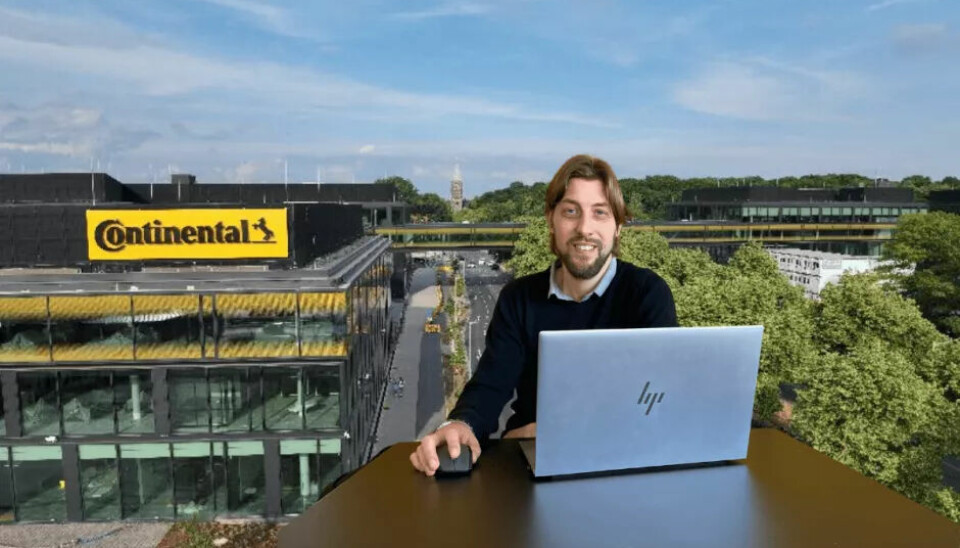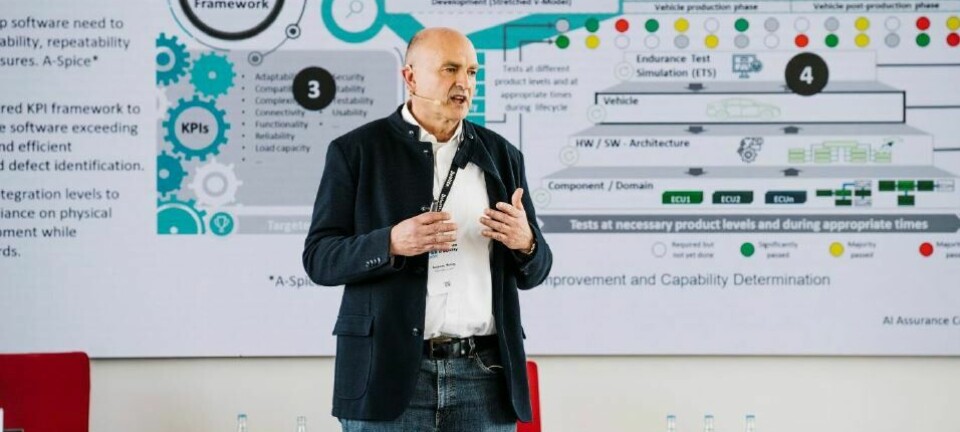Software Defined Vehicles
Continental
Mediator between Human and Machine

When engineers and AI cooperate, it can lead to misunderstandings. This is where a relatively new profession comes into play: Experts in Interactive Machine Learning prevent such conflicts as interpreters between two worlds.
Human and machine. A dream team? For Christian Wirth, yes. As a Senior Expert for Interactive Machine Learning at Continental Automotive, he gets the best out of this pairing. This position has only existed for a few years and was only recently created at a senior level. "As an expert in interactive machine learning, I work on projects where humans cooperate with artificial intelligence," explains Wirth. "That means projects where the AI is supposed to learn from the user or the user wants to integrate the results into their work, and this interaction must be explicitly considered."
This contrasts with today's popular AI applications like chatbots or image generators, where human characteristics are not particularly considered. "For example, these tools usually do not provide information about their reliability or allow the user to choose how they want to define a problem," the expert specifies. "Therefore, I mostly do not work with opaque AI methods like large language models, but specialise in 'weak AI', which is often used in automation."
Main Task: Understanding Requirements
Wirth tries to provide Continental's engineers with AI tools that support them in their tasks but take their way of working into account. "The user should not adapt their way of working to the AI, which is often not possible, but the AI integrates into existing workflows," says Wirth.
Thus, his main task is to examine new and existing projects to see if and how the users' requirements are considered and how these can be technically implemented. Unlike traditional roles, such as that of a Product Owner, he is not concerned with capturing and prioritising requirements, but with understanding them in detail and conceptualising technical implementations. This also means making potential limitations of a technology transparent and communicating them.
Working with Uncommon AI Methods
This approach is becoming increasingly important for the automotive industry along the entire value chain. Wirth mostly works on internal development processes at Continental. It often involves parameterisation tasks where system behaviour needs to be optimised. These are usually based on expert knowledge that has not been explicitly documented. Moreover, the expert must always take responsibility - and not delegate this to an AI. Wirth adds: "Thus, such tasks can only be solved with cooperative AI approaches." Since the development of such methods is still a research question, he is also involved in scientific projects around human-centred AI.
The fact that not everything in the beautiful new AI world can be done with a prompt is evident from the fact that Wirth has to coordinate a lot with colleagues and keep his ears open in the company: "I often participate in meetings about project ideas to analyse them in terms of feasibility and the requirements of human interaction." This requires a deep understanding of the problem and the working methods of potential users.
"Furthermore, I oversee implementation projects, where I analyse and select algorithms and approaches," says the 41-year-old. Often, the implementation also falls to him, as specialised procedures are sometimes used that are not part of common AI methods. In addition, Wirth acts as a mediator between users and AI developers, translating human requirements into the language of AI tools or coordinating AI-related limitations with users.
Some Projects are stopped early
"The most exciting part of the job is the insights you gain into a wide range of topics, as you usually have to understand the use cases in detail." Initially, he was surprised that cooperative approaches can often overcome AI scepticism: "Because the user sees that cooperative AI is explicitly just a tool and not a replacement for their work." It also becomes apparent that AI methods with a large media impact (such as chatbots and image generators) are only the tip of the iceberg. "Many advances through AI happen in the background," Wirth emphasises.
Through his work, he has been able to realise AI tools that were previously thought impossible, as they were not implemented with conventional approaches. But also this: Wirth stopped some projects early, as they seemed technically feasible, but only under unrealistic demands on users or the development process.
Not a Job for Beginners
How one grows into the AI mediator role is exemplified by Wirth's career: He studied computer science at TU Darmstadt and earned his doctorate, then spent three months at Hyundai Mobis before joining Continental in 2018. It is clear: As an expert in interactive machine learning, one should see oneself as a generalist. "That means you should bring in-depth knowledge of a wide range of AI methods, which can also lie outside of common neural networks," says Wirth. Additionally, one should have basic knowledge of psychology.
Last but not least, the willingness to engage in lifelong learning is an important qualification, as one must not only constantly further educate oneself but also learn every new application case. "Due to the high number of consulting activities, one should also be able to handle various projects simultaneously," adds Wirth. All of this can only be learned to a limited extent at university, which is why it is important to gather as much practical experience as possible early on: "This also means: this is not a job for beginners, but should be seen as part of the career path."
A career with, it seems, excellent future prospects. Because: "Conventional AI methods are often not applicable, as they do not fully meet requirements for verifiability or data availability," explains the expert. Acceptance and interpretability could also be limiting factors. Interactive or cooperative approaches offer a solution for this. And that's why people like Wirth are needed.
This article was first published at automotiveit.eu



